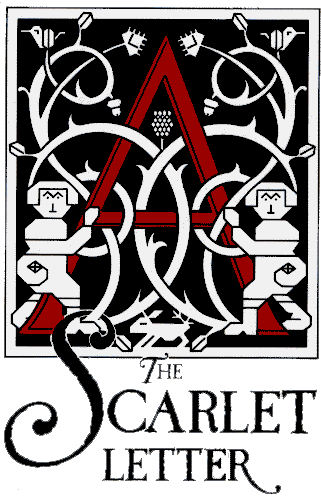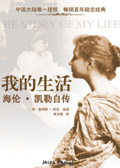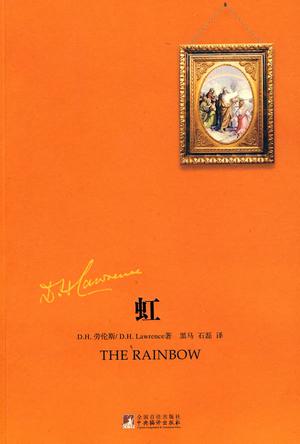the days of my life-第57章
按键盘上方向键 ← 或 → 可快速上下翻页,按键盘上的 Enter 键可回到本书目录页,按键盘上方向键 ↑ 可回到本页顶部!
————未阅读完?加入书签已便下次继续阅读!
r great testimony to the excellency of the sherd; which now reposes in a cupboard upstairs。15
15 It is now in Norwich Museum with the original MSS。 of many of Sir Rider’s tales。 — Ed。
The title “She;” if I remember aright; was taken from a certain rag doll; so named; which a nurse at Bradenham used to bring out of some dark recess in order to terrify those of my brothers and sisters who were in her charge。
“She” proved a great and immediate success; and I received many letters; of Sir Walter Besant; and one from Mr。 (now Sir Edmund) Gosse。
12 Gayton Crescent; Hampstead:
January 2; 1887。
My dear Haggard; — While I am under the spell of “Ayesha;” which I have only just finished; I must write to congratulate you upon a work which most certainly puts you at the head — a long away ahead
— of all contemporary imaginative writers。 If fiction is best cultivated in the field of pure invention then you are certainly the first of modern novelists。 “Solomon’s Mines” is left far behind。 It is not only the central conception that is so splendid in its audacity; but it is your logical and pitiless working out of the whole thing in its inevitable details that strikes me with astonishment。
I do not know what the critics will say about it。 Probably they will not read more than they can help and then let you off with a few general expressions。 If the critic is a woman she will put down this book with the remark that it is impossible — almost all women have this feeling towards the marvellous。
Whatever else you do; you will have “She” always behind you for purposes of odious parison。 And whatever critics say the book is bound to be a magnificent success。 Also it will produce a crop of imitators。 And all the little conventional story…tellers will be jogged out of their grooves — until they find new ones 。 。 。 。
Yours very sincerely;
Walter Besant。
Certainly Besant was quite right when he said that I should always have “She” behind me “for purposes of odious parison。” I always have。 Quite a large proportion of my critics during many years have mentioned in the course of their reviews of various works from my pen that the one under consideration is not another “She;” or words to that effect。 As though a man’s brain could harbour a host of “Shes”! Such literary polygamy is not possible。 Only one love of this kind is given to him。
The second letter that I a friend who I am glad to say still lives; Mr。 Edmund Gosse; the distinguished author and man of letters。16
16 Now Sir Edmund Gosse; C。B。
29 Delamere Terrace: January 8; 1887。
My dear Mr。 Rider Haggard; — I feel constrained to write again to you about “She” before the impression the book has made upon my mind in any degree wears off。 In construction I think you have been successful to a very marvellous degree。 The quality of the invention increases as you go on; and the latest chapters are the best。 Indeed it does not appear to me that I have ever been thrilled and terrified by any literature as I have by pp。 271…306 of “She。” It is simply unsurpassable。
All through the book there are points which I have noted for the highest praise; the three white fingers on Ustane’s hair; the dream about the skeletons; the meeting of the Living and the Dead; the Statue of Truth — these are only a few of the really marvellous things that the book contains。 I was a great admirer and; as you know; a warm weler of “King Solomon’s Mines;” but I confess that exceedingly picturesque and ingenious book did not prepare me for “She”; and I do not know what to say; of hope or fear; about any future book of adventure of yours。 I don’t know what is to be imagined beyond the death of Ayesha。
Accept again my thanks for the gift of your book; which I put among my treasures; and now the expression of my sincere and cordial admiration。
Yours most truly;
Edmund Gosse。
P。S。 — May I say; without impertinence; I think the style strikes me as a vast improvement upon that of “K。S。M。”?
To turn to something humorous — I find the following in the handwriting of the late Rev。 W。 J。 Loftie; headed “SHE” in large letters。
Are you acquainted with the story of the lady who wrote poetry? She had begun an epic —
“Man was made innocent and good; but he” —
when a visitor called。 She left the paper on the table: the visitor came in; waited a little and departed。 When she returned she found the couplet pleted:
“Man was made innocent and good; but he —
Would doubtless have continued so — but SHE!”
Well; “She” came out and was a great success。 On March 15th Charles Longman wrote to me in Egypt:
I am glad to tell you that “She” keeps on selling capitally。 We have printed 25;000 already; and have ordered another 5000; and I do not think we shall have many left when the printers deliver them。 。 。 。 Last week we sold over 1000 copies!
This was a large number as books sold in those days; when people were not accustomed to buying novels in one volume; having been in the habit of borrowing them from the library in three。 Moreover; from that day to this the sale of “She” has never ceased; whilst in America it was pirated by the hundred thousand。
All the reviews of it were not good; indeed some of them attacked it strongly。 Others; were enthusiastic。 The Times (a review in The Times then; before the days of Literary Supplements; if good; was very valuable) spoke extremely well of it。 The Times reviewer; however; criticises the Greek upon the sherd。 Had he known that it was the work of Dr。 Holden; one of the best Greek scholars of the day; he might have preferred to leave it unquestioned。 Here is the doctor’s letter on the subject; written from the Athenaeum in March 1886。
Dear Haggard; — Your task is not quite so big as one of the labours of Hercules; but by no means easy without further data。 Do you want the Greek to be such as to deceive the learned world into thinking that it is no forgery; but a genuine bit of antiquity? If so; the style will have to be taken into account: it won’t do to imitate Herodotus; though it is just the bit suitable for his style; because of the date B。C。 200。
Anyhow; I am just going down to Harrow to examine the Sixth Form for Scholarships; and shall be fully occupied there for a fortnight。 I hope therefore you are not in any particular hurry: if so; I must return you your MS。; which I cannot do justice to without some further consideration of the subject。
Yours sincerely;
H。 A。 Holden。
That my old master did consider it very thoroughly I know for a fact。 I remember his telling me that he would have liked to be able to give six months to study before he ventured on this particular piece of Greek。 I said that with all his great learning this was surely unnecessary。
“My dear boy;” he answered; “I have been soaking myself in the classics for over forty years; and I am just beginning to learn how little I know about them!”
In the same way the black…letter; mediaeval Latin inscription and the old English translation thereof; etc。; were the work of my late friend; Dr。 Raven; who was a very great authority on monkish Latin and mediaeval English。
Twenty years later; the time that I had always meant to elapse; I wrote a sequel under the title of “Ayesha; or The Return of She。” Of course; although successful in a way; it was more or less pooh…poohed and neglected on the principle that sequels must always be of no worth。
Of the scores of letters which I received about “She” from correspondents personally unknown to me; the following is perhaps one of the most curious。 It is written from the Electric…Technical Factory of Messrs。 Ganz and Co。; Budapest。
Dear Sir; — In explanation of the following lines please to learn that during the course of the last few weeks; we; whose signatures you will find adjoined; have had the pleasure of reading your celebrated novel; “She。”
Despite our various tastes; characters and nationalities we have; one and all; taken a most lively interest in your story。
It appears that each of us found in it a something which appealed to his sympathies; to one the ethnographical and topographical descriptions may have given satisfaction; to another the frequently occurring remembrances of athletic sports; in a third;





